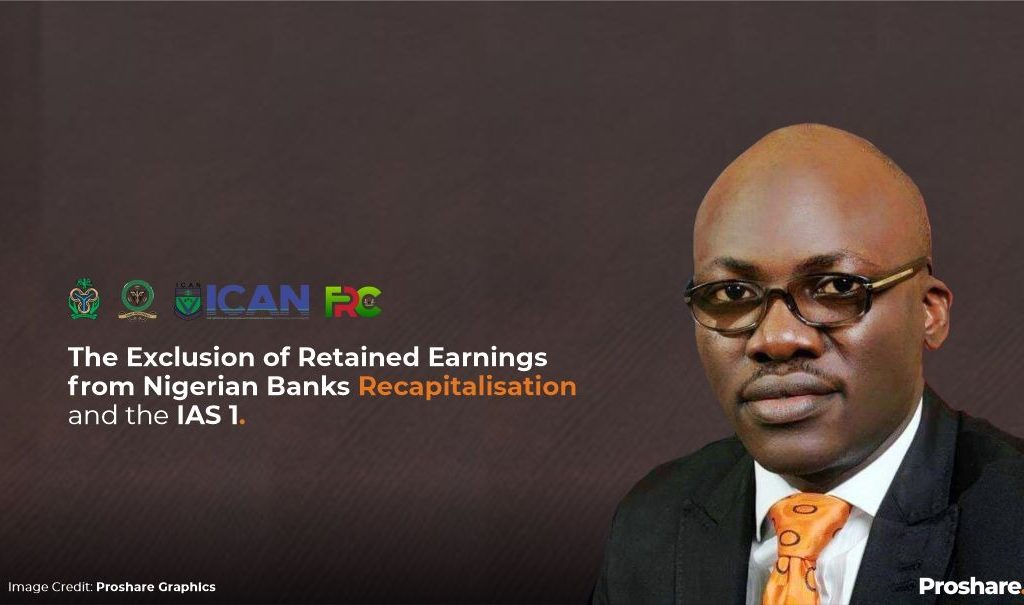
In an article in Businessday dated March 29, 2024, and titled “Why CBN excluded retained earnings in its recapitalisation terms”, Wasiu ALLI discussed the reasons behind the Central Bank of Nigeria’s (CBN) decision to exclude retained earnings from the capitalization terms for banks.
In that piece, the CBN, when defining share capital, it made a key point to exclude ‘retained earnings’ from the calculation, allowing only the bank’s ordinary share capital and share premium for consideration as new regulatory capital under its new capital structure parameters.
This has elicited concerns from the professional space who argues that the exclusion of retained earnings from the components eligible for the bank’s capitalization should be reevaluated.
This is particularly important given that the apex bank has endorsed the adoption of International Financial Reporting Standards (IFRS) by entities, as approved by the Financial Reporting Council of Nigeria (FRC). IAS 1 – Presentation of Financial Statements outlines the general requirements for the presentation of financial statements. This provision recognises that retained earnings are typically presented on the statement of financial position under equity through the statement of changes in equity.
Further, Share Premium, which constitutes gains from issuing shares at a price exceeding the nominal value after deducting issuance costs, is considered a reserve, much like undistributed profits accumulated over the years, now referred to as retained earnings.
It is therefore a considered opinion and suggested that the apex bank should reconsider its stance and allow retained earnings to be considered as part of banks’ capital for capitalization purposes.
To ensure accuracy, unrealized gains that form part of retained earnings, such as foreign exchange gains on transaction conversions and restatements of receivables and payables denominated in foreign currency at closing rates by the end of each reporting period, should be excluded.
Similarly, gains on the fair value adjustment of financial assets classified as Fair value through profit or loss should be excluded, unless these financial assets no longer exist due to sale, in which case the gains can be considered realized.
Reasons Why Retained Earnings Should Be Considered for Capitalization:
1. Stability and Solvency: Retained earnings represent a bank’s accumulated profits that have not been distributed to shareholders but retained for reinvestment. Utilizing these earnings can strengthen a bank’s capital base, enhancing its stability and solvency.
2. Enhanced Market Confidence: Using retained earnings for recapitalization signals to investors that the bank has generated enough profits to support growth plans, bolstering market confidence in its ability to operate profitably.
3. Reduced External Funding Dependency: Recapitalizing with retained earnings reduces reliance on external funding sources like debt or equity financing, lowering financial risk and reducing interest payments or dilution of existing shareholders’ stakes.
4. Preservation of Shareholder Value: Utilizing retained earnings for recapitalization preserves existing shareholders’ ownership stakes, maintaining confidence and protecting their interests during the process.
Overall, including retained earnings in Nigerian banks’ recapitalization efforts is deemed justified, providing a stable source of internally generated capital that enhances financial strength, market confidence, and shareholder value preservation.
In conclusion, the CBN is urged to reconsider its exclusion of retained earnings in bank capitalization by carefully analyzing the composition of each bank’s profit for the period and excluding all forms of unrealized gains from its constituents.
Copied
